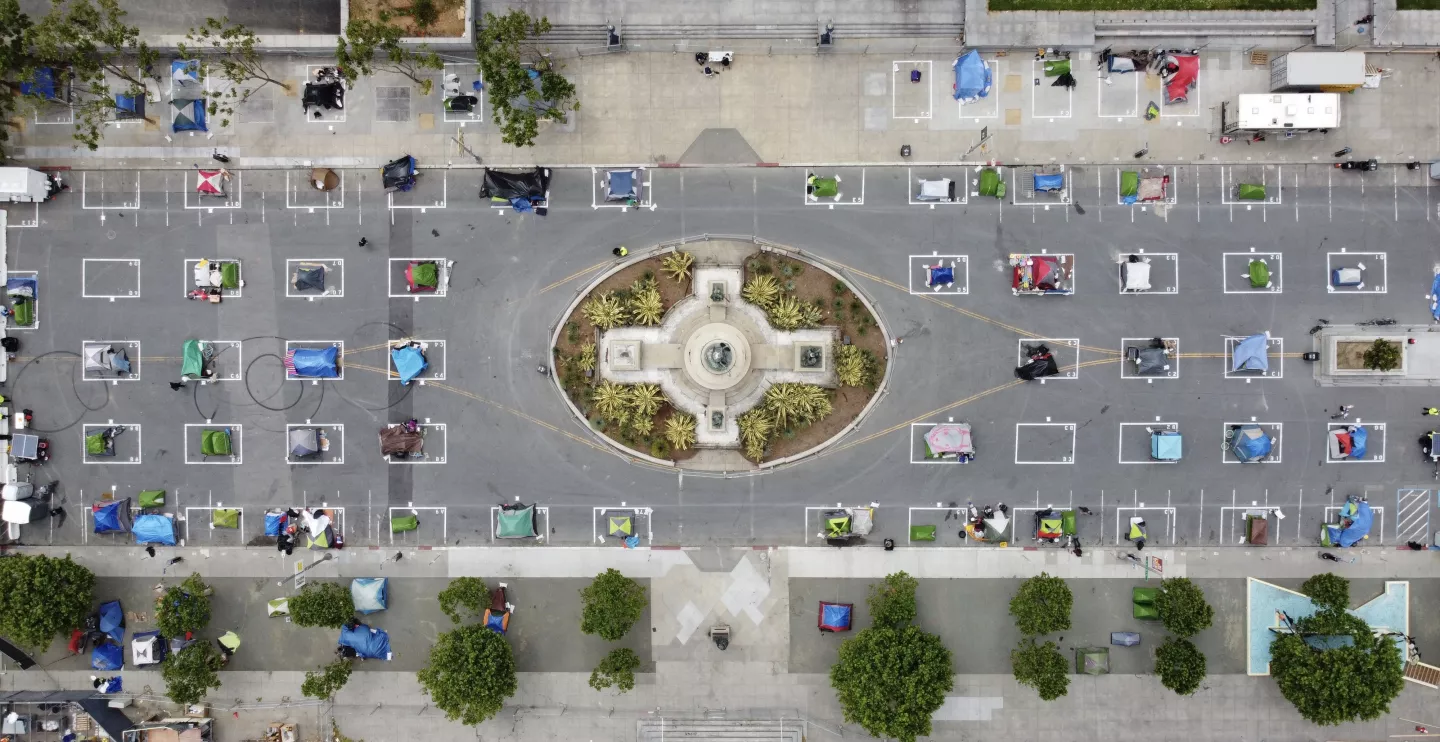UCLA researchers evaluated a new program that creates permanent supportive housing for Californians who are experiencing chronic homelessness and are high-cost health users.
The Housing for a Healthy California (HHC) Program is a California Department of Housing and Community Development Program that was launched to develop supportive housing for individuals who are recipients of, or eligible for, health care provided through the California Department of Health Care Services’ Medi-Cal program and are high-cost health users.
HHC funds were allocated through competitive awards to counties through Article I, which consisted of funds for acquisition or development of new construction projects or grants for project-based operating assistance, and Article II, which consisted of funds for long-term rental assistance, capitalized operating subsidy reserves, and acquisition, new construction, or rehabilitation of a project.
The UCLA Center for Health Policy Research’s Health Economics and Evaluation Research (HEER) Program was selected to conduct the evaluation of the HHC program. Nadereh Pourat, PhD, associate director at UCLA CHPR and director of the Health Economics and Evaluation Research (HEER) Program, led a team of researchers who evaluated the HHC program. The team conducted a mixed-method evaluation using a wide range of data sources including: grantee supportive services plans, bi-annual reports from grantees, Medi-Cal enrollment and claims data, and brief interviews with Article II grantees to assess the impact and highlight lessons learned through the program.
HHC at a Glance
230
participants were housed successfully from January 2021 to December 2022
0.58 and 0.38
fewer ED visits and hospitalizations, respectfully, per beneficiary from six months before to six months after being housed by HHC
$6,771
reduced Medi-Cal payments per beneficiary from six months before to six months after being housed by HHC
The evaluation focused on Article II funding in four counties — Kern, Los Angeles, Marin, and Sacramento — because these counties had successfully started housing individuals during the evaluation period (January 2021 to December 2022). No Article I awardees had completed construction or started housing during this period.
The conceptual framework for this evaluation indicated that receipt of stable housing and supportive services under the HHC Program improved the health of program recipients and lead to lower health care costs. The evaluation of California’s Housing for a Healthy California Program report findings showed:
- A total of 230 participants were housed successfully from January 2021 to December 2022, 161 of whom were housed in Los Angeles County.
- A significant decline of emergency department (ED) visits (0.58) and hospitalizations (0.38) per beneficiary from six months before to six months after being housed by HHC.
- Decline in Medi-Cal payments per beneficiary from six months before to six months after they enrolled in Housing for a Healthy California ($6,771 less).
- HHC participants were referred to and often received an array of supportive services designed to address their medical and social needs, promote retention, prevent incarcerations or involvement with law enforcement, and improve health and well-being.
This report was approved by the California Department of Housing and Community Development (HCD) in April 2024.
Our findings provide much-needed evidence that lack of housing is a likely reason for more visits to emergency rooms or hospitalizations due to harsh living conditions or inability to get timely and adequate care in non-urgent settings. Providing housing first can change the health trajectory of those experiencing homelessness.
Nadereh PouratPhD Director, Health Economics and Evaluation Research Program





